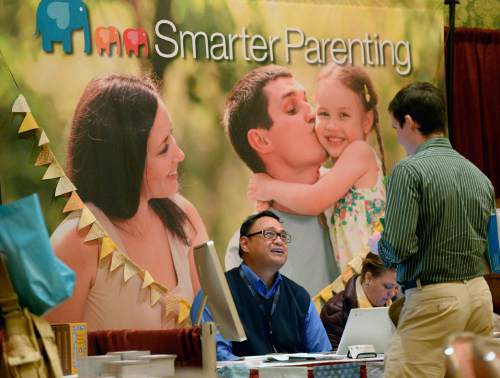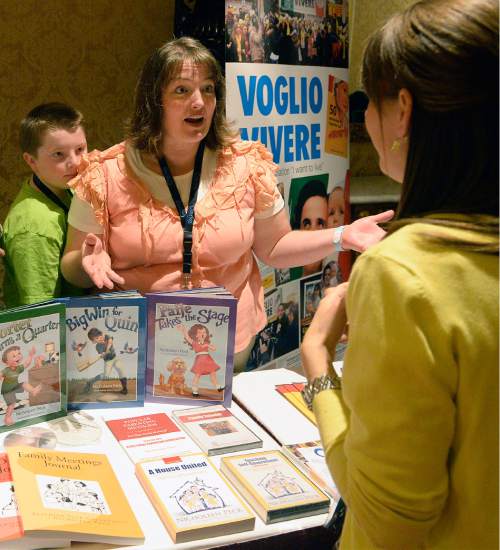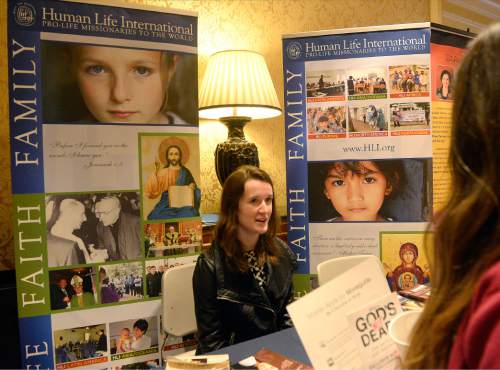This is an archived article that was published on sltrib.com in 2015, and information in the article may be outdated. It is provided only for personal research purposes and may not be reprinted.
Defenders of "traditional" marriage should not wring their hands with worry or wallow in depression over the U.S. Supreme Court ruling that legalized gay marriage, a leading family advocate said Wednesday, but rather should unite in an effort to overturn the decision.
"This is the time to move forward with vision, with goals, with tactics and to stand for that which cannot be changed," Brian Brown, president of the Princeton, N.J.-based National Organization for Marriage, told the World Congress of Families gathering in Salt Lake City.
The congress, an international movement celebrating and promoting the "natural" family — a husband, a wife and children — has drawn about 3,000 participants from around the globe for four days of meetings.
The Southern Poverty Law Center and the Human Rights Campaign, the nation's largest LGBT advocacy group, consider the congress a hate group and say its works and partnerships around the globe foster homophobia and policies that harm the lesbian, gay, bisexual and transgender community.
Congress organizers dispute the contention.
On Wednesday, Brown and others drew a standing ovation for remarks that renounced the high court's June ruling on same-sex marriage.
"Who you love has never been the government's business until now," said Cathy Ruse, an attorney with the Family Research Council. "Now, a public marriage license is a government stamp of approval for your personal feelings. … This is not progress."
Brown argued, however, that the 5-4 decision did nothing to change the true and fundamental nature of marriage.
"All the court did, as significant as it was," he said, "is put a lie into the law."
And that's not new.
Throughout history, judicial decisions have codified laws that were "at fundamental odds with the truth," Brown said. That includes rulings that barred blacks from full citizenship, forced states to return fugitive slaves and upheld the legality of compulsory sterilization for individuals with intellectual disabilities.
The voices of those who changed those laws reverberate through history, Brown said, and defenders of marriage should stand on the shoulders of those "martyrs" who stood against all odds.
"We should savor the fact that we live at a point in history, like those times before, in which we can stand for the truth … and God has put us here," he said. "This fight is not over."
Brown called on the audience to defend traditional marriage by engaging in the political process, holding elected officials and the Republican Party accountable for their respective positions on marriage.
He also offered a four-pronged set of goals for the movement: affirming the definition of traditional marriage, rejecting the logic of the high court's ruling, overturning the ruling and containing the decision's damage to society through the passage of other laws.
"There is no way that religious liberty will be completely protected in this country," Brown warned, "as long as this decision stands."
Brown called for traditionalists to support the First Amendment Defense Act, which has been proposed in Congress.
The legislation seeks to prevent discriminatory treatment of any individual on the basis of their views on marriage.
The bill has more than 140 co-sponsors in the U.S. House and may take several years to pass, Brown said, but it would provide critical protections for businesses, churches, organizations and individuals who do not support gay marriage.







